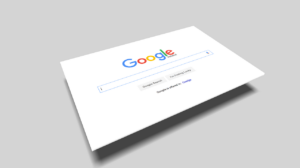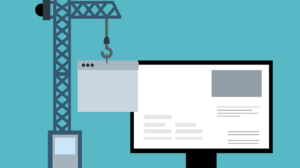If there’s one thing every newbie blogger is looking for, it’s a guide that shows them step by step how to start and build a successful blog. Unfortunately, this kind of guide does not exist.
No ebook, video training, or other document can save you from the many failures that lie ahead. We can show you how to do something, how to save time doing it, how to save money, or how to avoid making certain mistakes … but nothing and no one can protect you from the best possible opportunity to learn: failure.
Firstly, because between the practice and the result there is the skill (which you do not yet have). Second, because it is about the experience of another person and the results obtained in a context that is not and will not be yours.
Over the past 4 years, I have created several blogs and a business. Before I was successful, I made my share of mistakes and learned from them. If I had to start all over again, I would definitely do things differently.
To help you avoid making the same mistakes as me, I have decided to share (in the form of advice) all the lessons that I have learned in 4 years of blogging.
1. Don’t Blog on Current Events
I give you this advice because within your niche, there are certainly dozens of other people who are already blogging about current events. Why do the same? And while it is true that starting a news blog increases the chances of generating traffic, I recommend against this approach because it does not allow you to provide value to your readers.
Don’t obsess over how much traffic you can generate, what matters is not the traffic but the value you bring to your readers.
2. Choose a Niche
My first was about internet marketing, the problem is that there are too many blogs on this subject. Then I started a blog (generalist) about working from home on the internet. Once again, I realized two things: Almost everyone was talking about it and my blog was too general.
Finally, I started a blog on blogging. But this time, I focused it on some tips and tricks for newbie bloggers. I had a clear target. And, I was not wrong to make this choice because I was able to create and build a popular blog.
Another thing – choose a niche blog topic that has a long lifespan. Many bloggers quickly find themselves running out of content ideas due to the unpopularity of their niche.
3. Be Passionate
It is almost impossible to build a successful blog when you are not passionate about what you are blogging about. If you are not passionate, your readers will know and will not come back to your blog. On the other hand, blogging requires a lot of sacrifices (time – money – energy) and without passion, you will give up after awhile.
4. Learn How to Monetize Your Blog
There is nothing wrong with monetizing your blog. You spend your time providing solutions for your readers, so it’s okay to be rewarded for it. If you’re not blogging to make money, skip to the next point. If you are, you had better learn how to monetize your blog.
My income comes from:
- Services offered on my BlogPasCher.com site (WordPress installation – blog customization, ecommerce site creation, etc.)
- From the sale of my ebooks
- From my training (Blogger School)
- As well as my coaching
Monetizing a blog doesn’t depend on what product you are selling (or reselling), it is about how proficient you are.
5. Don’t Spend a Fortune on Your Blog Design
At first, I was convinced that if I spent lavishly on my blog design, then the odds would be in my favor. It was only after spending more than 2,700 euros on the design of my first blog (without results) that I realized that the solution was elsewhere.
Having a professionally designed blog certainly plays a big role in conversion, but it doesn’t guarantee you popularity.
Besides, most popular blogs have a simplified design. The content and optimization of a blog is much more important than its design. All that matters is that your blog is useful and well designed.
6. Have a Unique Design
It is more a question of originality than anything else. Customize your themes if you don’t want your blog confused with hundreds of others with the same theme as you. Your blog should have a unique visual identity.
You can for example:
- Change the default theme
- Change the design
- Modify the structure of the sidebar
- Etc.
7. Create Detailed Content
If you reread the first articles I posted on my blog, you will notice that they are not detailed enough. This wrong approach was negatively impacting my traffic. But once I started writing and posting detailed articles on my blog, the number of visitors started to climb and that wasn’t all … my monthly income also climbed.
The more useful content you have on your blog, the more visitors you have, and the more visitors you have, the more likely you are to generate more income.
8. Respond to Every Commentator
The biggest mistake I made when I started out was taking my commenters for granted. If I had responded to all the comments left on my blog, I believe my newsletter subscriber list would definitely be larger.
Today, I know how crucial it is to respond to every comment left on my blog. Whether it’s harsh or unfounded criticism or compliments and remarks , I now take the time to respond to every comment. This allows me to improve my blog and my knowledge of the expectations of my readers.
9. Build Relationships with Other Bloggers
Whether it’s building a popular blog or selling your products and services, you will need the support of other bloggers. Unfortunately for me, it took me two years to figure that out. Worse still, I lost a lot of partners because I did so badly at the beginning.
Learn how to create profitable partnerships but be careful. I am not asking you to join clans of bloggers whose only objective is to extract as much money as possible from poor beginners.
10. Choose the best blogging platform
To date, WordPress is by far the best blogging platform in the world. It is also the most popular. With WordPress, you don’t have to depend on your webmaster, you can do everything yourself. This represents a huge saving in time and money.
Choosing the wrong platform for your blog can only make your life difficult. You will spend more time complaining than moving forward with your project.
11. Don’t Write for Search Engines
Many SEO professionals own blogs that generate thousands of visitors per day. However, over 95% of people who visit these blogs are very often disappointed with the quality of the content and the style.
Write for your readers and the search engines will reward you for it. Each article you publish must solve a specific problem and the style you use when writing must be understandable to a human otherwise:
- No one will read your articles to the end
- No one will share your content on social media
- People will leave your blog as soon as it loads
- No one will come back to your blog
And all this will have disastrous consequences on your natural referencing.
Be careful. I’m not saying you shouldn’t optimize your articles. No, I’m just trying to make you understand that you need to focus on your readers’ issues and not on the traffic you can generate.
12. Tell a Personal Story
Don’t be shy or ashamed to share how much you’ve made mistakes (much like I did in this article). This approach will allow you to create more personal relationships with your readers.
13. It’s not about you, it’s about your readers
Who doesn’t want to share how successful he is? The problem is, people don’t like to read blogs where the content is all about promoting the success of the author. Like many newbie bloggers, I did this when I was just starting out… but luckily I was brought to order when I realized the consequences.
Instead of constantly bragging in your articles, write with the intention of educating and of being useful.
Do you have a lesson to share? Please share it with us in the comments section.





